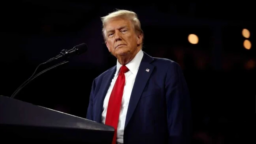The Music Modernization act is on the cusp of becoming law.
You may recall that, last week, the United States’ Senate unanimously approved the draft bill – and that only left two stages to go.
Yesterday (September 25), one of those hurdles was cleared, as the US House of Representatives unanimously approved the Senate’s write-up of the bill.
The final stage of the MMA’s progression will come at the White House, where President Donald Trump must sign it in order to make it law.
The message from a united music industry is loud and clear: Mr President, please don’t let us down.
NMPA President & CEO David Israelite said: “After many months moving through Congress, we are thrilled to see the Music Modernization Act officially passed. Now, only days stand between tonight’s House vote and this bill becoming law.
“We thank our champions Congressman Doug Collins, Hakeem Jeffries, Bob Goodlatte and all of the members who again voted unanimously to improve the lives of millions of music creators and fans. This was not an easy process, but it has galvanized the entire industry behind the songwriters, artists, producers and composers whose voices carried the bill across this threshold. Music is at the core of our country and it’s edifying to see Congress work together to ensure those who make it can make a living in the digital age.”
SoundExchange President and CEO Michael Huppe said: “If you are a music fan, you should celebrate today’s House passage of the Music Modernization Act. The music industry came together to demand that Congress modernize our music laws. That includes ensuring that music creators get paid more fairly. Because we spoke with one voice, Congress heard us. On behalf of SoundExchange’s 170,000-member community, thank you.”
“The music industry came together to demand that Congress modernize our music laws. That includes ensuring that music creators get paid more fairly. Because we spoke with one voice, Congress heard us.
John Josephson, SESAC Chairman and CEO, said: “Tonight’s unanimous passage of the Music Modernization Act by the House is a big win for content creators, and we remain hopeful the President will sign the bill in the coming days. Thanks to all for their support on this important legislation for our creative community.”
And Mitch Glazier, President of the RIAA, said: “With this final House vote, another chapter in the journey of this critical legislation comes to a close. As the Music Modernization Act goes to the President’s desk for signature, we have many Members to thank for their work to make this final House vote possible to improve the lives of countless artists, songwriters and producers.
“On behalf of a grateful music community, we extend our appreciation to Chairman Bob Goodlatte, Ranking Member Jerry Nadler, and Representatives Doug Collins, Darrell Issa, Marsha Blackburn, Joe Crowley, Ted Deutch, Hakeem Jeffries, and Tom Rooney for their leadership and commitment to getting this bill across the finish line. As the Turtles would say, we’re grateful Congress is ‘so happy together.”
The Music Modernization Act package contains three key elements:
- The Music Modernization Act reforms Section 115 of the U.S. Copyright Act to create a single licensing entity that administers the mechanical reproduction rights for all digital uses of musical compositions – like those used in interactive streaming models offered by Apple, Spotify, Amazon, Pandora, Google and others. It also repeals Section 114(i) and, consistent with most federal litigation, utilizes random assignment of judges to decide ASCAP and BMI rate-setting cases.
- The CLASSICS Act (Compensating Legacy Artists for their Songs, Service, & Important Contributions to Society Act) would benefit artists and music creators who recorded music before 1972 by establishing royalty payments whenever their music is played on digital radio. SoundExchange would distribute royalties for pre-’72 recordings played by Internet, cable and satellite radio services just as it does for post-’72 recordings. Currently only sound recordings made after 1972 receive payments from digital radio services under federal law.
- The AMP Act (Allocation for Music Producers Act) for the first time adds producers and engineers, who play an indispensable role in the creation of sound recordings, to U.S. copyright law. The bill codifies into law the producer’s right to collect digital royalties and provides a consistent, permanent process for studio professionals to receive royalties for their contributions to the creation of music.
Music Business Worldwide





